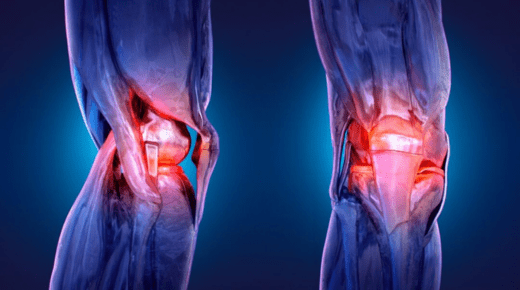1. Increased Pain and Discomfort
Delaying knee replacement surgery often leads to increased pain and discomfort. As the knee joint continues to deteriorate, everyday activities can become more painful. This ongoing pain can significantly affect your quality of life, making it difficult to enjoy daily activities and maintain your independence.
2. Reduced Mobility
Postponing knee surgery can result in reduced mobility. As the condition of your knee worsens, you might find it harder to move around. This limited mobility can impact your ability to perform basic tasks, such as walking, climbing stairs, or even standing up from a chair.
3. Joint Deformity
Over time, delaying knee replacement surgery can lead to joint deformity. The deterioration of the knee joint can cause the bones to shift and misalign. This deformity can become more pronounced and harder to correct, even with surgery, if not addressed promptly.
4. Muscle Weakness
When knee pain restricts your activity levels, muscle weakness can develop. Reduced use of your leg muscles can lead to atrophy, making them weaker and less supportive of your knee joint. This muscle weakness can further complicate recovery after surgery.
5. Increased Stiffness
Knee stiffness is another common issue when delaying surgery. As arthritis or other degenerative conditions progress, the knee joint can become increasingly stiff. This stiffness can limit your range of motion, making it difficult to bend or straighten your leg.
6. Greater Difficulty in Surgery
Delaying knee replacement can make the surgery more complex. As the joint deteriorates further, the surgical procedure may become more challenging for the orthopedic surgeon. This can increase the risk of complications and may require a longer recovery time.
7. Higher Risk of Complications
Postponing knee surgery can increase the risk of complications. As the condition of your knee worsens, you may be more prone to issues such as infections, blood clots, and poor wound healing. These complications can further delay your recovery and negatively impact the surgical outcome.
8. Lower Success Rates
The success rates of knee replacement surgery can decrease if delayed for too long. When surgery is performed earlier in the disease progression, patients tend to have better outcomes. Delaying surgery can lead to less optimal results and a reduced chance of regaining full function.
9. Impact on Mental Health
Chronic pain and reduced mobility can take a toll on your mental health. Delaying knee replacement surgery can lead to feelings of frustration, depression, and anxiety. Addressing your knee issues promptly can help improve your overall well-being and mental health.
10. Decreased Quality of Life
Your quality of life can significantly decline if you delay knee replacement surgery. Persistent pain, limited mobility, and reduced independence can make everyday tasks more difficult. By addressing the problem sooner, you can maintain a higher quality of life and continue enjoying your favorite activities.
11. Increased Dependence on Pain Medications
Delaying knee surgery often leads to a greater reliance on pain medications. Over time, you may need higher doses or stronger medications to manage your pain. This increased dependence can lead to side effects and potential addiction issues.
12. Higher Healthcare Costs
Postponing knee replacement surgery can result in higher healthcare costs. Ongoing treatments, medications, and doctor visits to manage your symptoms can add up over time. Early surgical intervention can reduce these costs and provide a more cost-effective solution.
13. Strain on Other Joints
Compensating for a painful knee can put additional strain on other joints, such as your hips, back, and the opposite knee. This compensation can lead to further joint problems and pain, creating a cycle of discomfort and mobility issues.
14. Difficulty in Maintaining a Healthy Weight
Limited mobility due to knee pain can make it challenging to maintain a healthy weight. Reduced physical activity can lead to weight gain, which can further exacerbate knee problems and create additional health risks, such as heart disease and diabetes.
15. Risk of Falls and Injuries
Delaying knee replacement surgery can increase your risk of falls and injuries. Reduced stability and mobility can make you more prone to accidents. A fall can cause further damage to your knee or other parts of your body, complicating your health situation.
16. Impact on Employment
Chronic knee pain and limited mobility can affect your ability to work. Delaying surgery can lead to more sick days, reduced productivity, and potentially even job loss. Early intervention can help you maintain your employment and perform your job duties effectively.
17. Social Isolation
Living with chronic knee pain can lead to social isolation. Difficulty moving around can make it challenging to participate in social activities and gatherings. This isolation can negatively impact your mental health and overall well-being.
18. Reduced Participation in Physical Activities
Delaying knee replacement surgery can limit your ability to participate in physical activities. Regular exercise is essential for maintaining overall health, but knee pain can make it difficult to stay active. Early surgery can help you return to your favorite activities sooner.
19. Long-Term Joint Damage
The longer you wait for knee replacement surgery, the more damage can occur to your joint. This ongoing damage can make it harder to achieve a successful outcome from surgery and can lead to more extensive joint issues in the future.
20. Delayed Recovery
Postponing knee surgery can lead to a longer and more difficult recovery process. The more advanced your condition is at the time of surgery, the more challenging it can be to recover fully. Early intervention can result in a smoother and quicker recovery.
21. Lower Overall Health
Chronic knee pain and limited mobility can impact your overall health. Reduced physical activity can lead to other health issues, such as cardiovascular disease, obesity, and diabetes. Addressing knee problems promptly can help you maintain better overall health.
22. Increased Stress on Family and Caregivers
Your knee pain and limited mobility can place additional stress on your family and caregivers. They may need to assist you with daily tasks and provide extra support. Early knee replacement surgery can reduce this burden and allow you to be more independent.
23. Loss of Independence
Delaying knee replacement surgery can lead to a loss of independence. As your mobility decreases, you may need more assistance with everyday activities. Early surgical intervention can help you maintain your independence and improve your quality of life.
24. Difficulty in Traveling
Chronic knee pain can make traveling difficult and uncomfortable. Delaying surgery can limit your ability to visit family, go on vacations, or travel for work. Addressing your knee issues early can help you enjoy travel experiences without pain or discomfort.
25. Long-Term Disability
Severe knee problems can eventually lead to long-term disability if left untreated. Delaying knee replacement surgery increases the risk of permanent joint damage and disability, which can drastically affect your lifestyle. Early surgical intervention can prevent long-term disability and enhance your overall quality of life.



